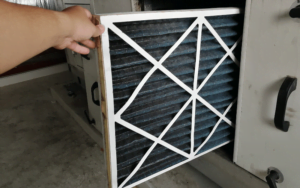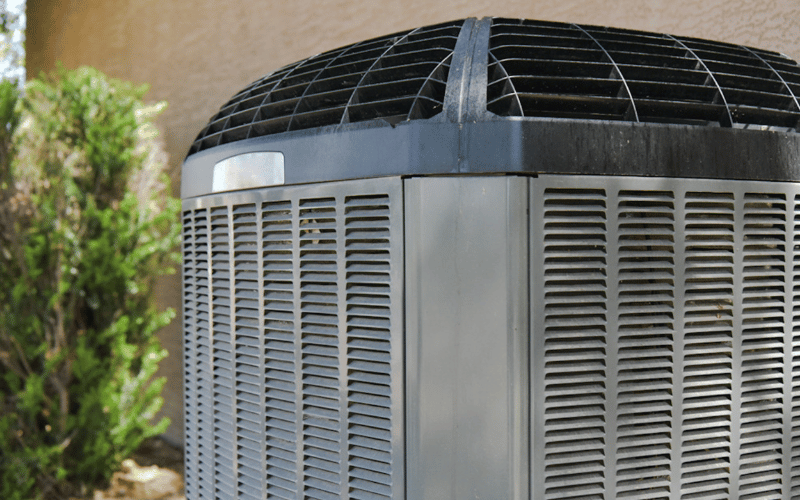When it comes to HVAC unit replacement, Energy HVAC Services stands as a beacon of trust and reliability. We understand that replacing your HVAC system is not just about improving your home’s comfort and air quality, but also about making an investment towards energy efficiency and lowering maintenance costs. Our team of seasoned professionals is committed to providing you with the best solutions tailored to your specific needs.
With transparent pricing and top-notch service, we ensure that the process of HVAC unit replacement is seamless and worry-free. At Energy HVAC Services, our goal isn’t just to replace your HVAC unit, but to enhance your living experience. As a leading HVAC maintenance company, Energy HVAC Services understands the importance of maintaining a comfortable environment in your home. Central to achieving this is your Heating, Ventilation, and Air Conditioning (HVAC) unit. However, even the best HVAC units reach a point when replacement becomes more efficient and cost-effective than repair. This article provides insights into the key considerations for an HVAC unit replacement.
Signs that Your HVAC Unit May Need Replacement
Observing your HVAC system’s performance can indicate when you might need a replacement. These are telltale indicators that your unit might be nearing the end of its effective lifespan:
- Rising Energy Bills: An increase in your energy bills that isn’t linked to rate hikes or a significant change in usage can indicate that your HVAC system is losing its efficiency. As the system ages, it often requires more energy to produce the same amount of heating or cooling, which can significantly raise your energy costs.
- Frequent Breakdowns: If you find yourself frequently calling HVAC specialists for repairs, it might be time to consider a replacement. The costs of constant repairs can quickly add up and may exceed the cost of getting a new, more reliable unit.
- Age of the System: HVAC systems typically have a lifespan of about 10-15 years. If your system is within or beyond this age range, it may be nearing the end of its effective service life. Older systems are often less efficient and more prone to breakdowns.
- Uneven Heating or Cooling: If you notice that some rooms in your home are too hot while others are too cold, it could be a sign of a failing HVAC system. Uneven temperatures often mean the system is struggling to distribute air properly throughout your home.
- Excessive Noise or Odor: Strange noises like grinding, squealing, or banging are often signs of serious problems. Additionally, if your HVAC unit emits strange smells – such as a burning or musty odor – it may indicate a problem that could necessitate replacement.
- Increased Humidity: HVAC systems help to control humidity levels in your home. If you notice a persistent issue with humidity, it’s possible that your HVAC system is not working correctly.
Remember, if you notice these signs, it’s a good idea to schedule an HVAC inspection with Energy HVAC Services. Our certified professionals can assess your system, providing clear guidance on whether a repair or a full HVAC unit replacement would be the most beneficial and cost-effective solution for you.
Factors to Consider Before HVAC Unit Replacement
Before initiating a replacement, consider the lifespan of your current unit and the frequency and cost of recent repairs. Energy efficiency is a crucial consideration, as top-rated HVAC units can lead to significant energy savings. Additionally, an upgraded HVAC system can enhance your property value, a useful tip for those considering selling their homes. 
The Process of HVAC Unit Replacement
The replacement process commences with an initial assessment to determine the appropriate new unit, factoring in aspects like size, power, and energy efficiency. Whether you opt for central systems, ductless models, or heat pumps, each type has unique benefits and drawbacks. Our team at Energy HVAC Services ensures a smooth installation process, minimizing disruption to your routine. here’s a more detailed look at the process of HVAC unit replacement:
- Initial Assessment: The first step in replacing your HVAC system involves a comprehensive assessment of your home’s heating and cooling requirements. This involves considering the size of your home, the climate, and the energy efficiency desired.
- Choosing the Right Unit: After the initial assessment, the next step is choosing a new unit that matches your home’s needs. The choice could be among different types of systems such as central, ductless, or heat pumps, each offering unique benefits. The top HVAC units offer energy efficiency, durability, and effective climate control.
- Removing the Old System: Before the new system can be installed, the old system must be properly and safely removed. This includes careful disconnection of the old unit to prevent damage to your home’s electrical system or ductwork.
- Preparing the Installation Site: The location where the new unit will be installed must be prepared. This can include adjusting the existing space or creating new spaces to accommodate the new unit.
- Installing the New Unit: The new HVAC system is installed and connected to your home’s ductwork, electrical system, and thermostat. This must be done by certified HVAC specialists to ensure it’s done correctly and safely.
- Post-installation Testing: After the new unit is installed, it’s crucial to test the system to ensure it’s working properly and efficiently. This includes checking for correct thermostat operation, proper airflow, and that the system can maintain a consistent temperature.
- Cleanup and Final Inspection: After testing, any debris or old components are cleaned up and removed. A final inspection is conducted to ensure everything is working correctly and that you’re happy with the new installation.
Cost Factors Involved in HVAC Unit Replacement
Here’s a more detailed breakdown of the key cost factors involved in HVAC unit replacement:
- Cost of the New Unit: The price tag of the new HVAC system forms a significant chunk of the overall cost. This can vary significantly based on the type of system you choose. Top-rated HVAC units might come with a higher upfront cost, but they can offer more energy efficiency and reliability, saving you money in the long run.
- Installation Costs: This is the labor cost for removing your old unit and installing the new one. It typically depends on the complexity of the installation and the rates of the HVAC maintenance service you choose. At Energy HVAC Services, we strive to offer competitive rates while ensuring top-notch service.
- Additional Modification Costs: Depending on your home and the HVAC system you choose, you might need to modify existing ductwork or electrical systems to accommodate the new unit. In some cases, you may need to upgrade your home’s insulation or ventilation systems to maximize the efficiency of your new HVAC unit.
- Cost of Disposal of the Old Unit: Disposing of your old HVAC unit in an environmentally friendly manner is also a cost to consider
- Energy Savings: While this doesn’t reduce the upfront cost, it’s worth considering potential energy savings when calculating the overall cost-effectiveness of a new HVAC unit. A more energy-efficient unit can significantly lower your monthly utility bills, providing long-term savings that can offset the initial cost of the unit.
- Rebates or Incentives: Often, local or federal energy departments offer incentives or rebates for installing energy-efficient HVAC systems. These rebates can significantly reduce the HVAC unit replacement cost.
- Maintenance Costs: While new systems generally require less maintenance, there is still a need for regular service to keep them operating at peak performance. The cost of regular tune-ups should be factored into the total cost of ownership.
Choosing a Reliable HVAC Replacement Contractor
Involving certified professionals in your HVAC unit replacement guarantees you top-notch service and peace of mind. As HVAC specialists, we recommend vetting potential contractors thoroughly, using customer reviews and references. Energy HVAC Services takes pride in offering top-quality HVAC air conditioning services and replacement assistance to clients.
Conclusion
Given the pivotal role that HVAC units play in maintaining a comfortable home environment, timely HVAC unit replacement is vital. Energy HVAC Services stands ready to assist, offering an array of services, from a thorough HVAC inspection to affordable HVAC maintenance costs. Remember, investing in your home’s comfort and efficiency with a top HVAC unit can reap dividends in the long term. When it’s time for your next HVAC tune-up or replacement, consider us your trusted partner. We are committed to offering quality, affordability, and excellence in service.
Frequently Asked Questions
What factors should you consider before replacing an HVAC unit?
Before replacing an HVAC unit, consider its age, efficiency, and frequency of repairs. Additionally, evaluate your current energy bills and the unit's overall performance in maintaining desired indoor comfort levels.
How often should an HVAC unit typically be replaced?
An HVAC unit typically lasts 10-15 years, depending on usage and maintenance. It's advisable to consider replacement after this period or if efficiency drops and repair costs increase.
How does the age and efficiency of an old HVAC unit impact the decision to replace it?
Older HVAC units are often less efficient, leading to higher energy costs, and may lack modern features, making replacement a cost-effective choice.
How does the size of the space and climate affect the type of HVAC unit needed?
The HVAC unit must be properly sized for the space, and consideration should be given to local climate conditions to ensure optimal performance.
Can an HVAC unit be replaced by the homeowner, or should a professional be hired?
HVAC unit replacement usually requires professional installation to ensure it's done safely and complies with local codes and manufacturer guidelines.





